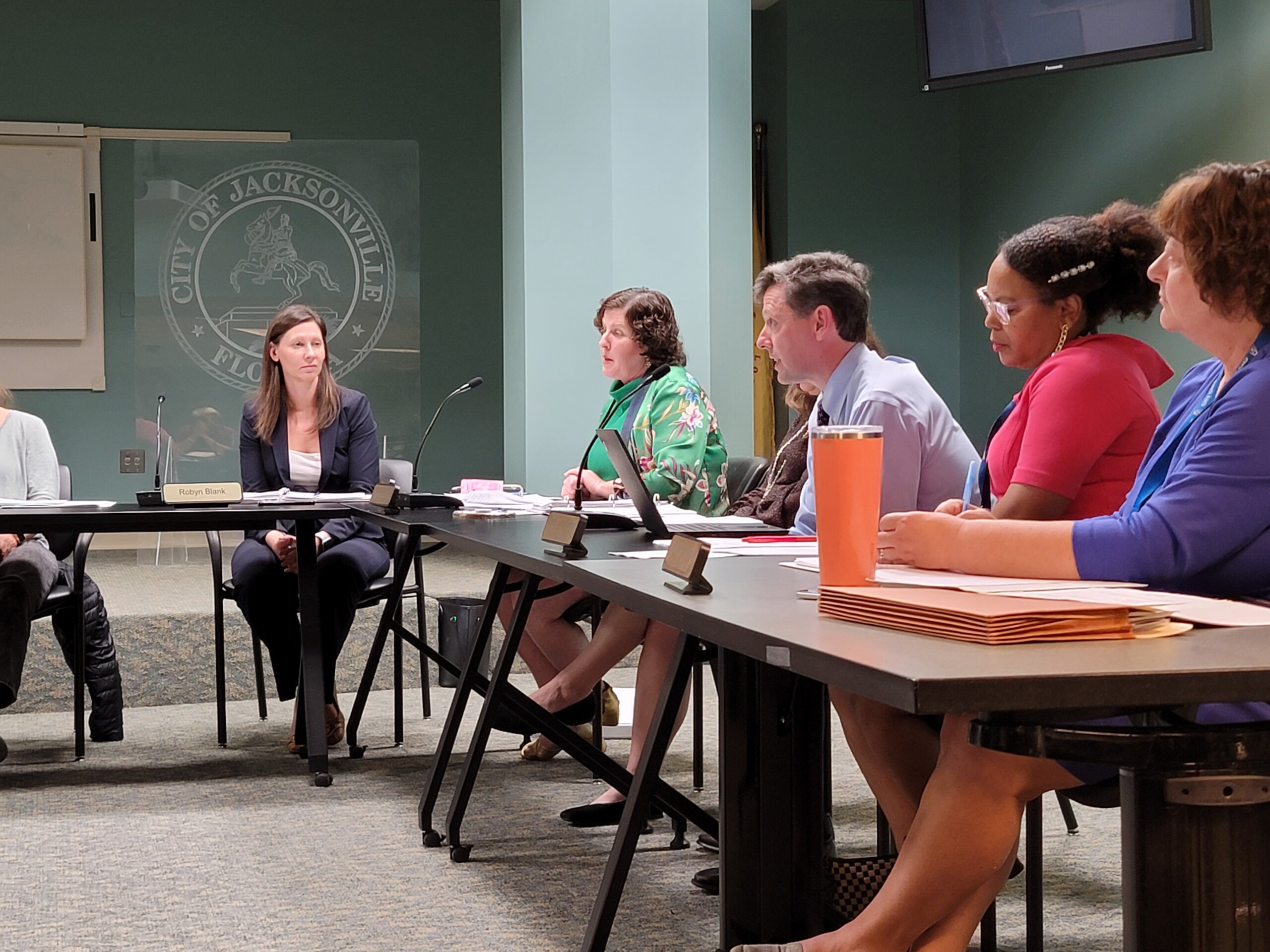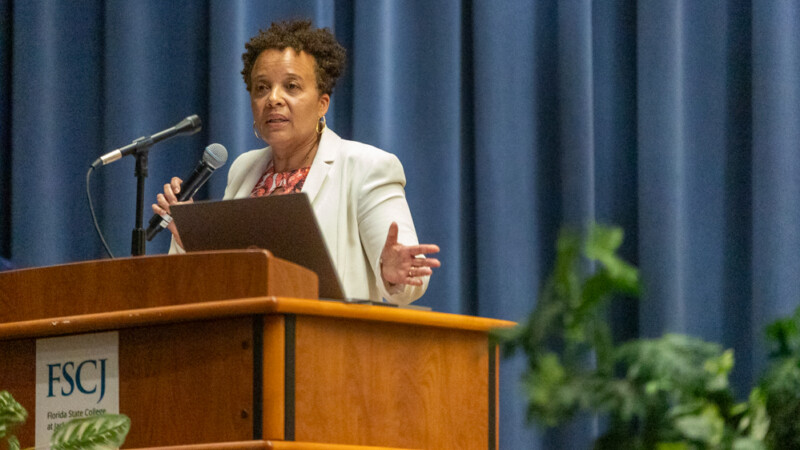For eight consecutive Mondays since March 7, The Florida Ethics Institute has submitted — and resubmitted — a written plea to Gov. Ron DeSantis to veto an ethics bill that ethicists are calling “pro-corruption.”
The legislation, Senate Bill 7014, would eliminate the ability of citizens to file anonymous ethics complaints against government officials. Those who do file a complaint would have to have firsthand knowledge of an alleged violation and no hearsay.
That means, for one, that an investigative report where a journalist unveiled data or public documents could not be used by a reader to initiate a complaint.
The documents and data, according to bill sponsor Sen. Danny Burgess, R-Zephyrhills, could be used by the journalist themselves to file a complaint with state or local ethics boards. But that type of action has traditionally been seen as an ethical violation for journalists. Plus, the legislation would stop the ability of ethics boards across the state to initiate investigations on their own.
Before state legislators OK’d the bill, the Jacksonville Ethics Commission joined directors of the Miami-Dade and Naple ethics commissions in opposition, saying it would “reduce anti-corruption efforts and undermine the investigation process.”
Proponents of the legislation have said the law will smooth a “patchwork of differing standards” across local and state ethics boards and define for all of them the type of evidence that is admissible to file a complaint.
Back in March, those proponents won out.
With fewer than 24 hours left in the session, Florida legislators approved the bill in a 79-34 vote in the House and a 26-4 vote in the Senate. Immediately, ethics boards statewide rushed to prepare for a shift, in case DeSantis signed the legislation into law quickly.
But that hasn’t occurred. While dozens upon dozens of other bills have been handed off weekly to the governor’s office — some accompanied by planned press conferences and media releases — SB 7014 has remained in legislative purgatory.
The governor still has time to veto the bill, as ethicists have requested, or put the full weight of his office behind it by signing the legislation.
Or DeSantis could remain silent.
He could just let it quietly become law.
That’s what Catherine Klancke, executive director of the nonprofit Florida Ethics Institute, expects.
“It remains motionless,” Klancke says. She checks the Senate website each day to keep tabs on it. “This ethics legislation was very, very controversial, and opposed — not only by ethicists throughout Florida and governmental organizations such as the Florida Ethics Institute — but by the (Florida) Commission on Ethics.”
In an email to Jacksonville Today on Thursday, the government agency’s Executive Director Kerrie Stillman said the commission opposed three lines in an “earlier version of the bill” but that the Commission “did not take a position on the final version of the bill passed by the legislature.”
As long as the bill remains in limbo, Klancke says she is viewing it as an opportunity for citizens to urge the governor’s office to kill the legislation before it can take effect.
“It’s not too late for Floridians to join the Florida Ethics Institute and ask the governor to veto this incredibly problematic bill,” says Klancke, who is an attorney, ethicist and former general counsel and deputy executive director of the Florida Commission on Ethics. “It’s profoundly undemocratic. We refer to it as a pro-corruption bill for a reason.”
Elected officials seem to feel differently about the legislation, particularly Burgess, who authored the bill and is chair of the Senate Committee on Ethics and Elections.
In an opinion column published in the Tampa Bay Times on Friday, Burgess shooed away criticism of the bill. Critics say the new rules would intimidate people who might otherwise file a legitimate complaint or have the effect of silencing whistleblowers.
In the opinion piece, Burgess says people who are being accused of malfeasance — such as elected officials — should have a right to know who filed a complaint against them.
“The parts that have the fainting couch crowd so upset involve local ethics boards,” Burgess writes. “Currently, there are massive discrepancies statewide when it comes to these boards.”
He writes that “local boards have created a patchwork of differing standards for how to file an ethics complaint and what evidence is admissible for an ethics complaint.” The Republican feels the diversity of local rules is not good policy and says SB 7014 fixes that.
The senator — perhaps in a tongue-in-cheek example — compares the legal standards for filing an ethics complaint to accusing someone of murder.
“Would you like the standards for murder to be different in Duval County than in Hillsborough County? Of course not,” Burgess writes. “This bill simply requires local ethics boards to have a consistent standard statewide by requiring them to meet the same standards as the Florida Ethics Commission. One standard of ethics for everyone? Talk about a radical idea!”
And, judging by the overwhelming approval of the bill by politicians in the House and Senate, most there agree with Burgess.
It remains unclear what the governor plans to do with the legislation. While multiple attempts to reach DeSantis’ press office earlier this week were unsuccessful, the governor held a press conference Thursday morning in Jacksonville.
Asked by Jax Today if he would like to see the ethics bill brought to his desk, DeSantis replied, “I don’t know that I’ve reviewed that yet.”
“It has not been sent to me,” the governor said. “I mean, I think, as you know, they pass all this stuff — like hundreds of bills — and then… once they send them to me, the clock starts.”
In the meantime, Klancke says her organization and others will “stand in the breach” hoping they can persuade the general public to realize the consequences of a new law and join them in urging the governor to veto the bill.
“The only benefit of undermining and completely preventing the ethics investigatory process — especially on the political subdivision level, given the great work that local ethics commissions like the Jacksonville Ethics Commission are doing every day — the only one who benefits from impoverishing that superlative system are those who seek to act unethically and not in the public trust,” Klancke says.

Casmira Harrison is a Jacksonville Today reporter focusing on local government in Duval County.






